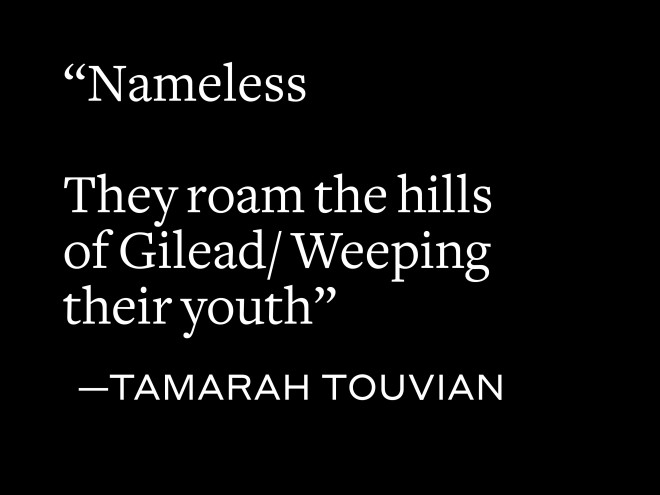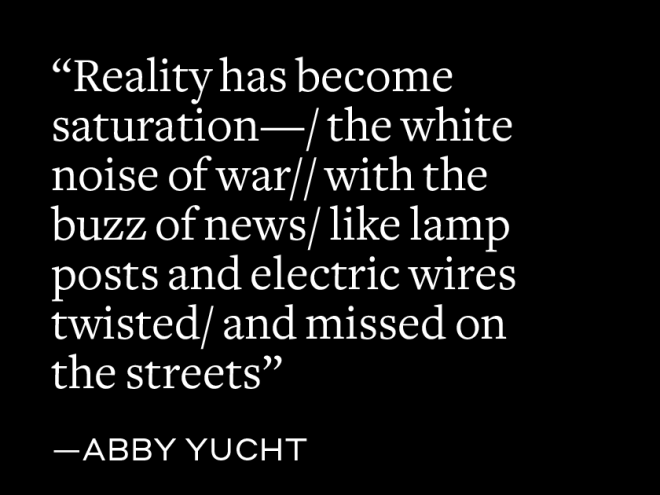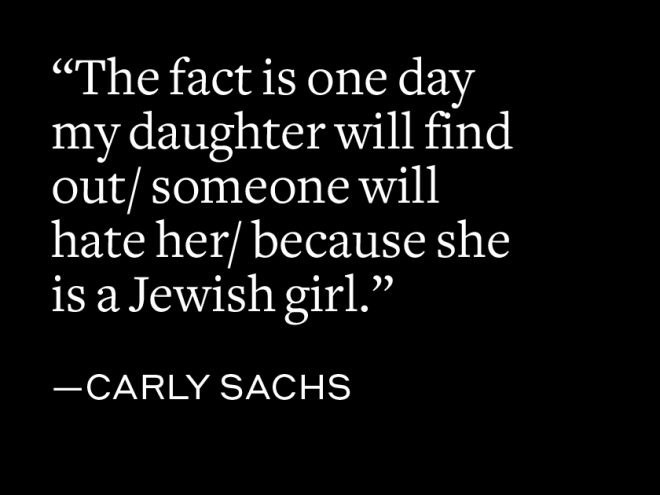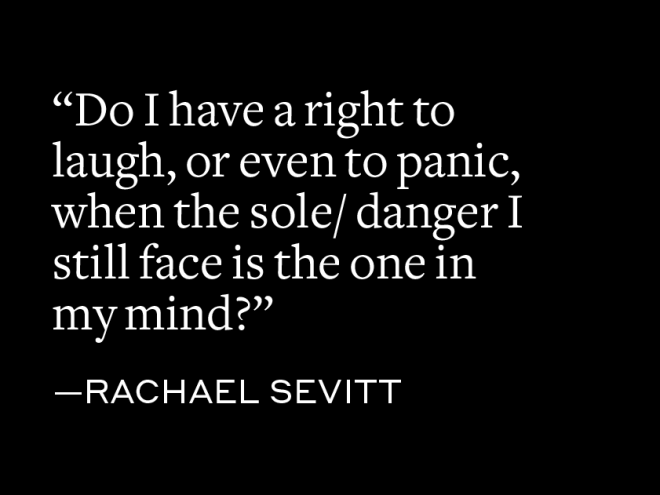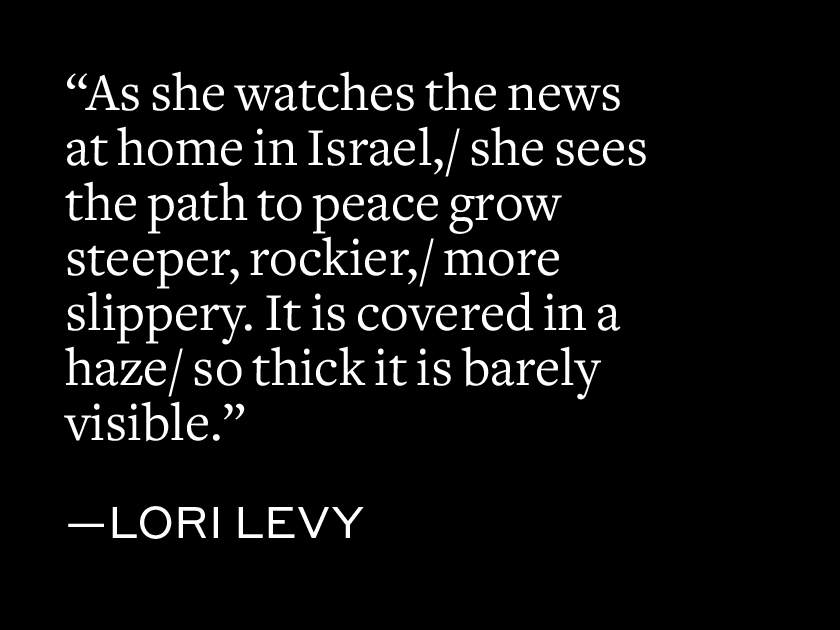
This piece is part of our Witnessing series, which shares pieces from Israeli authors and authors in Israel, as well as the experiences of Jewish writers around the globe in the aftermath of October 7th.
It is critical to understand history not just through the books that will be written later, but also through the first-hand testimonies and real-time accounting of events as they occur. At Jewish Book Council, we understand the value of these written testimonials and of sharing these individual experiences. It’s more important now than ever to give space to these voices and narratives.
In collaboration with the Jewish Book Council, JBI is recording these pieces to increase the accessibility of these accounts for individuals who are blind, have low vision or are print disabled.
In Israel, Watching the News
For Katie
She doesn’t have the smash instinct, says my sister.
The crush-your-enemy-at-all-costs rage.
As she watches the news at home in Israel,
she sees the path to peace grow steeper, rockier,
more slippery. It is covered in a haze
so thick it is barely visible.
She listens, weighs pros and cons.
One thing is clear to her:
war is bad, no one benefits from it.
She is not a fighter — unless it’s to protest
for peace. For humanity. For the hostages.
As we find ourselves mired in a black or white
world of good versus evil,
she might begin with a question:
What do we do when the more terrorists we kill,
the more hate we create, generation after generation?
She believes in dialogue, compromise.
In one day living beside neighbors — Palestinians—
who want to be our friends.
Yafeh Nefesh is what some Israelis call my sister
and others like her, spitting the words out like a curse.
I look it up in the dictionary: sensitive, noble, gentle.
Dangerously soft-hearted is what they mean.
I cringe at the hardness in their tone.
Beside my sister, wherever we are,
I breathe in the scent of possibility,
her presence soft as peace.
After the Massacre on October 7
All day long, from the moment we open our eyes
to the moment before we close them at night,
we check our phones for breaking news,
for updates on the fate of the hostages, the war.
More rockets, bombs, death, destruction.
Our hearts fill with the stories of the survivors,
witnesses to murder, rape, burning, beheading.
I feel the horrors, atrocities, noise, chaos
become a knife digging into my lower back,
the pain so bad I can barely bend down
to tie my shoes. For a week, more,
I carry it around with me, walking with it,
eating with it, sleeping with it.
I take it with me to meet my friend.
We sit in her daughter’s backyard,
talk about the war, about the hatred
spilling out in our cities, crowds chanting threats
we thought we’d never hear in America.
Still, something in me responds to this moment:
the cushioned chair, coffee, cinnamon biscuits.
My pain begins to loosen, melt, dissolve
in the presence of the lemon tree in the corner,
the toddler toys scattered about.
I want to sit here forever with my friend and
her daughter, warmed by the sun, filling and filling
with the quiet of this yard.
The views and opinions expressed above are those of the author, based on their observations and experiences.
Support the work of Jewish Book Council and become a member today.
